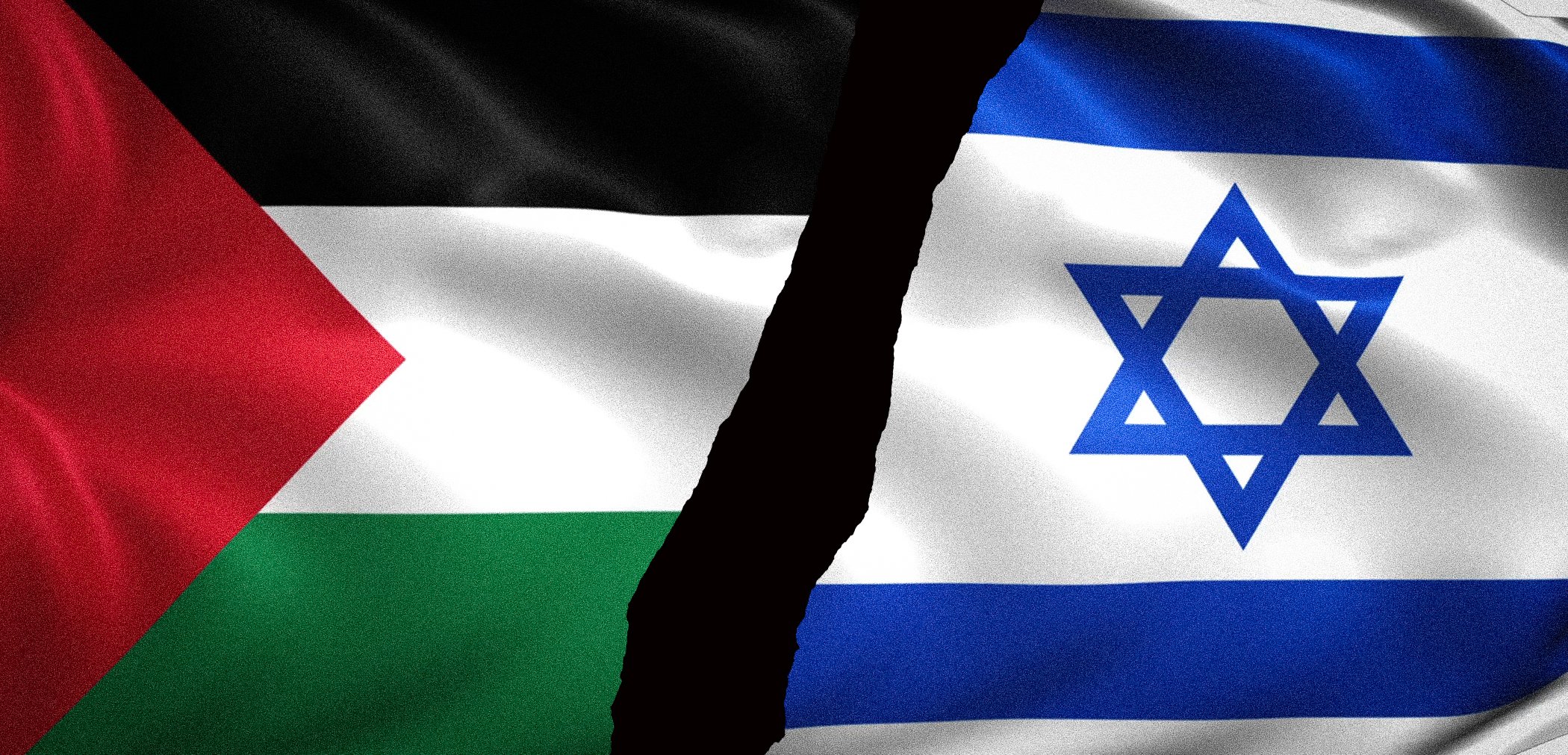Editorial | Further bloodshed won’t resolve war between Israel, Palestine
Let’s start with the most important thing. Lives are being lost. Humans are suffering. Photo collage by EMILY PARIS, Photo Editor
Let’s start with the most important thing. Lives are being lost. Humans are suffering.
In the Hamas attack the weekend of Oct. 7, over 1,400 people were killed. The bombs dropped in the Gaza Strip in retaliation have already claimed more than 2,750 lives.
Nothing excuses those actions.
Israel is holding the Gaza Strip hostage, withholding water, food and electricity from thousands of people while bombing escape routes. Hamas massacred Israeli citizens and is holding many more hostage.
Hamas took over 200 captives, including Israeli soldiers, civilians and foreigners, and continues to hold them captive. As of Nov. 22, Israel is holding at least 4,700 Palestinians, including over 140 minors.
None of this is right.
You can’t fight terror with terror. The only thing that will come from that is more attacks and more people displaced and hurt; and in the end, more dead bodies.
The idea that you can either stand with Israel or you support terrorism is a false dichotomy to support war. The idea that you either support Israel or you hate Jews is fundamentally untrue.
You can condemn the Israeli genocide of Palestinians as well as the violence towards Jews anywhere.
This is a moment where we should all be horrified at the atrocities that are being committed against both Palestinian and Israeli citizens. This is a place where human life should take precedence above everything else. The loss of it should never become an excuse for more bloodshed.
This is a humanitarian crisis and that is how we should view it, not whose side is more justified in their killing.
Luckily, on Nov. 22, Israel and Hamas announced that they reached a temporary truce, in which there will be a four-day pause in fighting.
As part of this truce, Hamas will release 50 civilian Israeli women and children, while Israel will release 150 Palestinian women and children. Additionally, more humanitarian convoys and relief aid will be allowed into Gaza, and the truce is subject to an extension. The truce will begin on Nov. 24, and Israeli Prime Minister Benjamin Netanyahu stated that the truce won’t be an end to the war and that the war will resume after the four days.
The negotiations were led by Qatar, a country in the Middle East located on the coastline of the Arabian Peninsula.
Throughout the over 40 days of fighting in Gaza, we have seen that the Israel-Hamas conflict goes beyond just what is happening in the region. The perception people have of what’s going on has real life consequences on how they act, and it’s important not to add fuel to the fire of this already complicated conflict.
At The Panther, we want to acknowledge the role that news outlets play when something like this happens.
While writing this opinion, there have already been various instances where other media outlets have spread fake news without verifying their origin and thus have contributed to the spreading of hateful rhetoric.
There have been many stories that have been spread widely and across multiple platforms that ran without verification of facts and whose origins were later tracked to a single source.
One such instance was an allegation that Hamas was beheading babies in Kfar Azza. This story came from an Israeli news report and was later corroborated by the Israeli prime minister’s office. This gave validity to the story that helped it spread wide across social media as well as on a CNN broadcast. This story was later proven to have no proof to back it up, but by then, the damage had already been done.
Let’s be clear. News organizations have a responsibility to make sure that the stories they run are factually accurate. Especially when it comes to something as delicate and potentially dangerous as this.
And, it’s not just the big media outlets that are helping spread disinformation. People with both big and small social media platforms need to be cautious of what they repost.
There are multiple videos and pictures that are being spread around social media under false claims that they are a representation of what’s been happening in the region. For instance, there was a video of a 2015 lynching in Guatemala that is being misrepresented as a woman being burnt by a Palestinian mob.
The misrepresented images and the fake news that people share online have real life consequences. In this already terrible conflict, adding in misinformation is like fanning the flames. And, it makes the violence spread around the world by inspiring fear and hate.
As a newspaper, we take our job seriously not to contribute to the further spreading of misinformation. During these times, we will make sure that what we publish is accurate and factual and does not contribute in any way to a false rhetoric.
That is our commitment as a media outlet ourselves. We recognize the power our words can have in our community at large and around the world, and we will be careful of how we use our platform.
But, above everything, we want to acknowledge the human lives that are being harmed. Because they should come above everything else.

